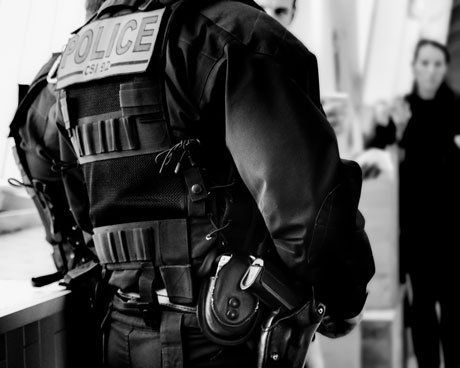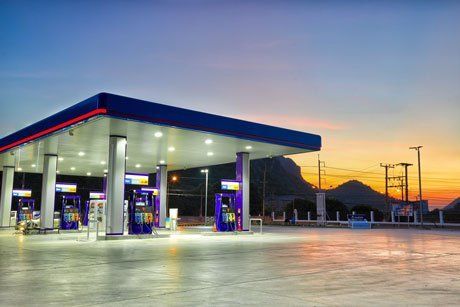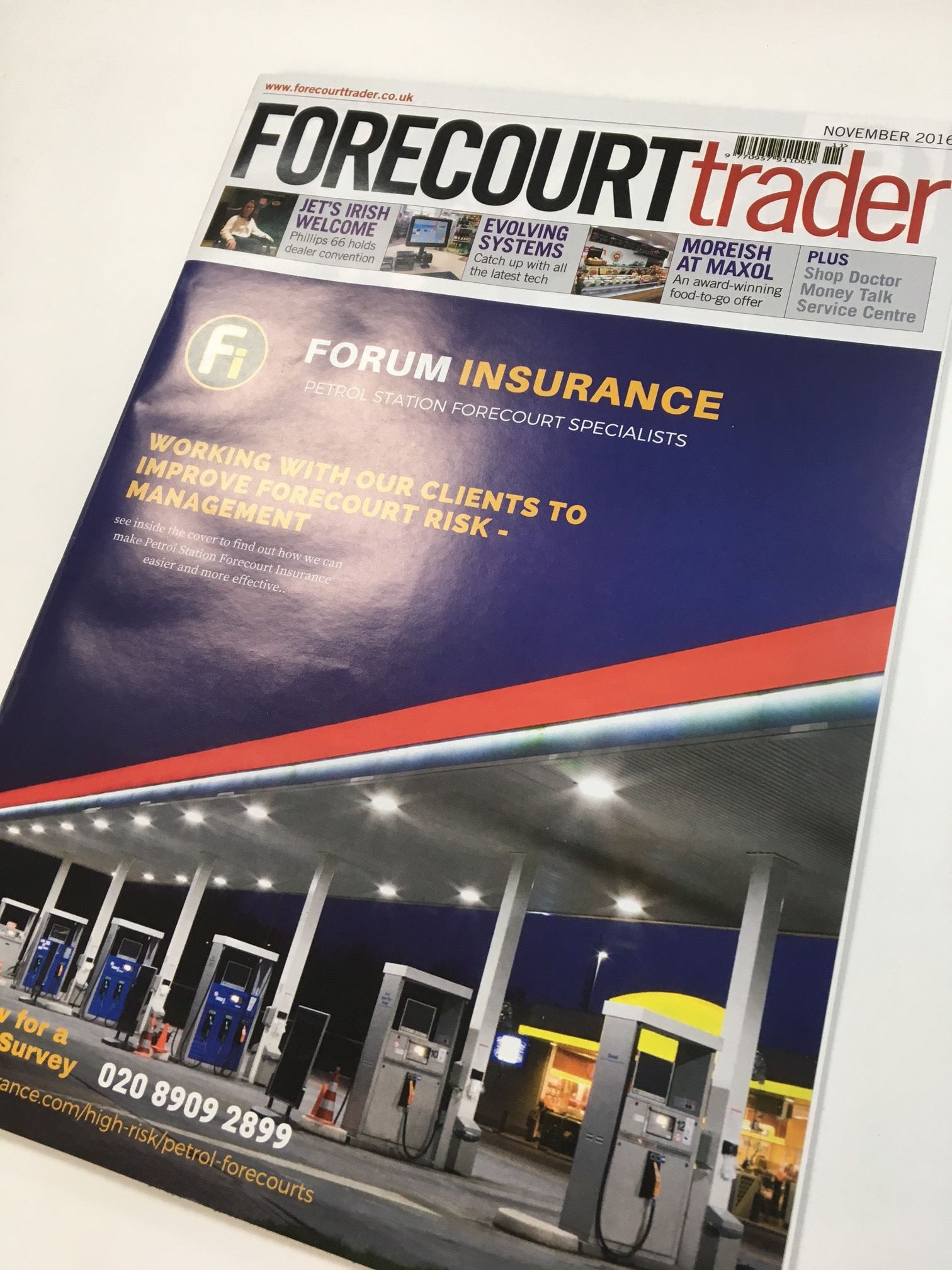LATEST NEWS

Crowded places are – and will remain – attractive targets for international and “home-grown” terrorists and so an important element of any counter-terrorist strategy is to create safer places and buildings that are less vulnerable to a terrorist attack. This is especially so for leisure, hospitality, retail industries. Cost of terrorism Companies still significantly underestimate their potential exposure to the related risks and losses, especially to the increasing indirect risks from terrorism elsewhere. For example, the Paris attacks in November 2015 paralysed Brussels’ tourism and retail sectors some 320 kilometres away and had a lasting impact on the city’s commerce. Many UK companies are unaware – or have underestimated – the financial losses that could occur if a key supplier or business partner (in the UK or internationally) were unable to operate for a significant period of time. The human and financial cost of terrorism is growing rapidly. The Institute of Economics and Peace has estimated that the direct cost of terrorism to the global economy in 2014 was $52.9 billion – a ten-fold increase since 2000 – and the indirect costs at $105 billion. Practical steps Companies can’t predict all possible threats to their business. However, by working through a range of potential scenarios and consequences it is possible to make informed judgements and set appropriate priorities. The following process is an effective way for companies to think about improving the management of these risks: Step one: identify the threats. Understanding terrorists’ intentions and capabilities, what they might do and how they might act, is a crucial first step to assessing potential threats. Step two: decide what you need to do to. Priorities should fall under the following categories: people, physical assets, information and process (supply chains and the operational process required to support the business). Step three: identify measures to reduce risk. Companies should introduce new proportionate measures that: deter would-be terrorists;
aid detection of intrusion; and
delay any attempts at intrusion. Step four: continually review your security measures. Security and contingency plans should be rehearsed and reviewed on a regular basis to ensure they remain accurate, workable and up-to-date. Terrorism Insurance Since the IRA attack on the Baltic Exchange in London in 1993, the UK established a mutual government reinsurer, Pool Re, to provide a backstop to insurers that offer terrorism cover on business property and business interruption policies. This has worked well and despite £600 million of claims from 13 separate incidents there has been no use of public money. However, the increasingly interconnected nature of global commerce means that UK organisations are not only exposed to events in the domestic market but many also have international exposures through the global reach of their business activities. Companies can also be impacted via a change in consumer behaviour in the aftermath of a terrorist attack. New threats and new risks require new insurance solutions and one insurer is now offering a contingent Loss of Attraction cover, for example. As always if you have any questions regarding your business insurance please contact Forum Insurance on 020 8909 2899

Here are some of the measures IT professionals believe are essential for protecting against cyber crime: Install anti-virus, web filtering and firewalls. The best way to secure against a cyber attack is to prevent an attacker entering your system in the first place. Implementing anti-virus, web filtering and firewalls are a must – and ensuring they are always up-to-date. Keep software updates up to date! Before you start shopping with any online retailers look for the security information in the address bar to ensure you see the letters “https:” to indicate that it’s a secure site. You might also see a little padlock symbol in the same line. Consider using an alternative form of payment that protects you a little more. An online payment service like PayPal has strong safeguards in place, and can serve as a go-between for you and the retailer – you can even use your regular credit card as a payment method within PayPal. In order to shop on any online retailer’s web site, you will most likely be required to create an account. When you do establish an account, it’s important to choose a strong password that has a combination of letters, numbers, and symbols, and don’t forget to throw in a mixture of upper and lower case. It is also recommended to create unique passwords, meaning you don’t use the same password for multiple websites. Check your credit cards routinely during the coming weeks to make sure there is no unauthorised activity, and remember to alert your bank if you have reason to believe that your identity has been compromised. If you have a business, keep your employees trained to be careful what they click on if receiving deals! They may not be from the well known brand they appear to be from – and this could spread a virus throughout your company’s system.

Amish joins the family business after successfully managing the business through a change period, structuring the team to serve it’s core markets. Mamtora studied at Aston University prior to joining the family business some 4 years ago. In his new role he will be responsible for growing the business in both existing and unchartered sectors. Managing Director Barry Mamtora said, “I am delighted Amish has chosen to join the family business and take it to the next stage. We have celebrated 25 years in business and I have every confidence Amish will maximise insurer partnerships and leverage our buying power to deliver the best risk management solutions for our clients.” A number of key achievements have driven Forum’s growth in the past few years including the expansion into petrol forecourts where they have gained significant market share. This appointment hails the next phase of growth for Forum Insurance. Amish Mamtora said, “I am delighted to be appointed director at such an exciting time. The opportunity to continue Forum’s success story and utilise technology to our advantage is key to my plans for the future. It is an exciting time for independent broking.” Forum Insurance are developing an ongoing client consultation programme, ensuring our diverse client base are best placed to understand the individual risks to their business. Amish continued, “As a family business we share a common passion for excellent customer service and look forward to working even closer with our clients, delivering traditional personal service. This opens up some very exciting opportunities for our employees."

A spike in thefts of Asian jewellery around Diwali highlights the need for individuals to check they are properly insured. The Metropolitan Police have warned of an annual rise in burglary and robbery at a time where Asian communities travel to attend events. Gold is highly desirable to criminals due to the speed that it can be exchanged for large sums of cash. Here are our top tips for keeping your jewellery safe: Ensure that there is adequate safe protection in your home Have a professional valuation for all high value items Photograph all items of jewellery Avoid wearing high-value pieces in areas or places that you don’t know Turn rings around to conceal diamonds and stones and cover high-value watches with long-sleeved clothing when in busy, public areas We wish you and your family a Happy Diwali and a Prosperous New Year! If you have any questions regarding your insurance please contact Forum Insurance on 020 8909 2899.

Crowded places have become an attractive targets for international and “home-grown” terrorists. We discovered yesterday that the definition of terrorism with most UK Insurers does not cover the “lone wolf” style attacks we have sadly been subjected to. You may be aware of the collective Pool Re terrorism cover which was established in 1993 in conjunction with HM Government and most major UK insurers belong to this scheme. The definition of terrorism insurance by Pool Re is that attacks must be committed by individuals connected of an organisation which is seeking to influence or overthrow a government by force or violence. Also, the attack must be defined as an act of terrorism by HM Treasury. For example, businesses surrounding Borough Market are having difficulty getting insurance claims paid for this reason. At Forum Insurance, we can arrange a terrorism insurance policy which provides cover irrespective of a declaration by HM Treasury and includes persons acting alone. Recently, “Lone Wolf” attacks are becoming more prevalent and may not be limited to city central areas. Whilst property damage may be minimal, the potential losses to a small business from “denial of access” while authorities undertake thorough investigations may be extensive and may possibly threaten the future of the business. Please contact Forum Insurance to ensure you have the right terrorism insurance in place on 020 8909 2899.

Amish joins the family business after successfully managing the business through a change period, structuring the team to serve it’s core markets. Mamtora studied at Aston University prior to joining the family business some 4 years ago. In his new role he will be responsible for growing the business in both existing and unchartered sectors. Managing Director Barry Mamtora said, “I am delighted Amish has chosen to join the family business and take it to the next stage. We have celebrated 25 years in business and I have every confidence Amish will maximise insurer partnerships and leverage our buying power to deliver the best risk management solutions for our clients.” A number of key achievements have driven Forum’s growth in the past few years including the expansion into petrol forecourts where they have gained significant market share. This appointment hails the next phase of growth for Forum Insurance. Amish Mamtora said, “I am delighted to be appointed director at such an exciting time. The opportunity to continue Forum’s success story and utilise technology to our advantage is key to my plans for the future. It is an exciting time for independent broking.” Forum Insurance are developing an ongoing client consultation programme, ensuring our diverse client base are best placed to understand the individual risks to their business. Amish continued, “As a family business we share a common passion for excellent customer service and look forward to working even closer with our clients, delivering traditional personal service. This opens up some very exciting opportunities for our employees."

Forum Insurance has become one of the UK’s leading brokers specialising in insuring petrol forecourts. With over 25 years’ experience in the sector, we understand these businesses are naturally at a greater risk than many other retail premises. Filling station insurance is vitally important, from the threat of fires or fuel leaks to vehicle collisions and thefts, there are a variety of dangers for these companies to protect themselves against. Our comprehensive forecourt insurance packages ensure that you’re covered in the unfortunate event you must make a claim. Enhancing Petrol Station Forecourt Risk Most independent forecourt owners understand their insurance needs and have adequate cover in place. However, just as the industry has improved in leaps and bounds, so have the requirements and options for insurance cover. For example, EPOS technology systems now sit at the front line when it comes to tracking transactions and identifying fraud at point of sale. Fuel Tank monitoring systems can quickly and safely shut of valves and fuel flow if changes in temperature, pressure and so on occur. Just as these improvements have been made so have insurance providers enhanced their policies and cover. What additional features can I expect from leading insurance policies? As mentioned above insurance covers have greatly been enhanced since “the good old days”, we have listed some of the additional covers we believe our clients should have to be fully protected. Extended Liability Cover – Forecourt sites have varying levels of traffic and footfall, but most of these sites, no matter how well managed, will at some point see an employer’s liability or public liability claim, for example from a slip or trip on spillage, or impact claims made by careless drivers resulting in pump and third-party damage. Increasing the standard liability limits to 10m will ensure you are adequately protected. Environmental Impairment Liability – Many sites suffer from unforeseen spills or leakages. These incidents are often gradual and go unnoticed for a significant time before detection, this can lead to enormous environmental liability claims that stretch out for years. Come and talk to us if you are concerned this may happen to you, we provide enhancements and fully comprehensive management of leaks and spills including notification to the appropriate authorities. Stock In the Open – The majority of insurance policies for forecourts are enhanced motor trade policies, this means they are not really designed to cater for the full scope of forecourt risks. An example of this is stock in the open, you should check your policy wording very carefully to guarantee that your gas canisters, flowers, newsstands and so on that are external to the shop itself are covered. Malicious Damage by Employees – Many polices either do not provide cover for malicious damage, or if they do these types of claims often carry hefty deductibles (excesses) up to £2500! This often makes the point of claiming redundant as values for damage we have seen range between £200 – £3000 meaning either a policy holder cannot claim, or the benefit of claiming becomes minimal when reflected in the following years premium following a pay out! Our Products & Covers Convenience remains the watchword in forecourt design, and that’s how we’ve designed our insurance offering. The first step in protecting any petrol station forecourt is solid insurance cover and we ensure you are correctly covered for: Property & Buildings Public & Employers’ Liability Business Interruption Commercial Legal Expenses Environmental Impairment Liability Money theft Personal Accident for Employees Stock in Open Stock including Fuel Target stock such as spirits and tobacco products We also appreciate that petrol station insurance may not always be at the forefront of a business owner’s priorities. That’s why we have made the process of getting suitable cover easy. A simple question set that can be answered over a friendly ten-minute conversation or by or easy to fill bespoke proposal form. By coming to us for your financial protection, you can rest assured you’ll get a policy that meets all your needs. We take the hard work and complexity out of the process and provide independent, professional advice. Download your FREE e-book . Forum Insurance has created an e-book with some fascinating facts about the history of filling stations. Take a look at the big changes that have swept through petrol forecourts over the decades and delve into some of the important safety improvements that have been made. Download your FREE copy of the publication . What to know more? Or have any questions for us? We would be happy to help, simply give us a call on the details below, or send us an email and we will get back to you within 24 hours.

